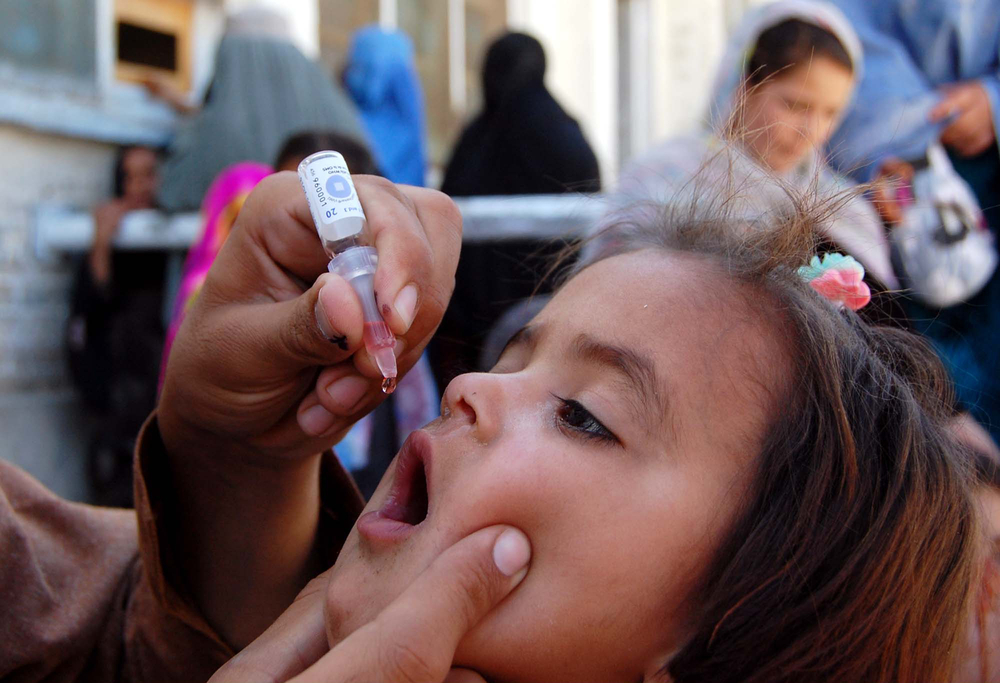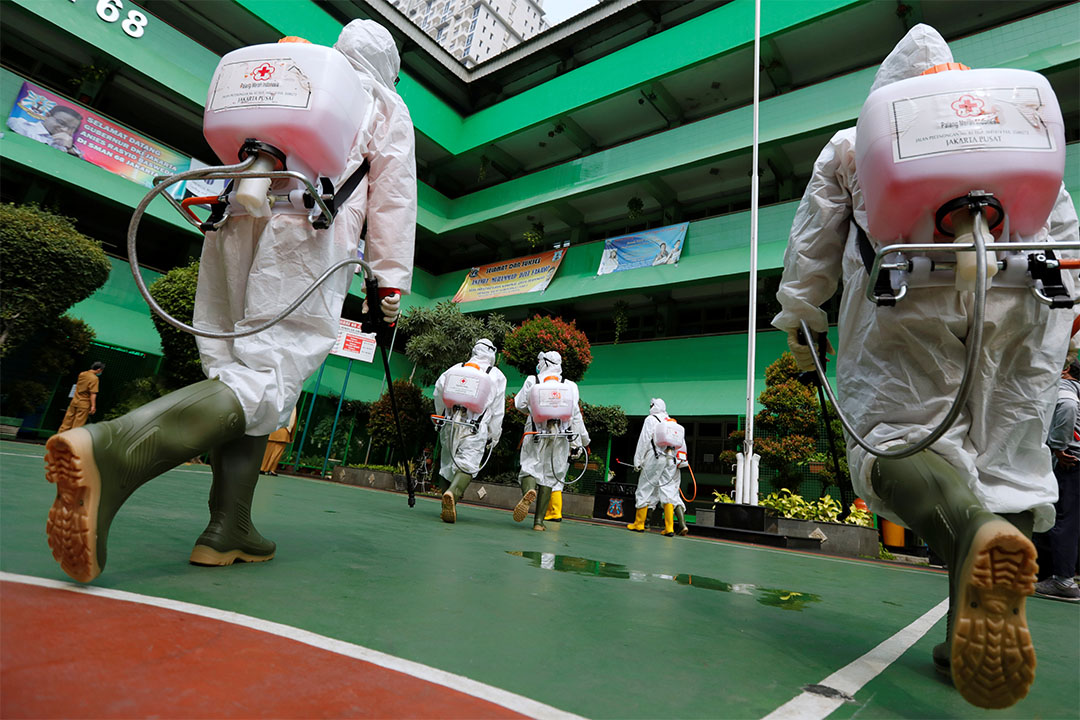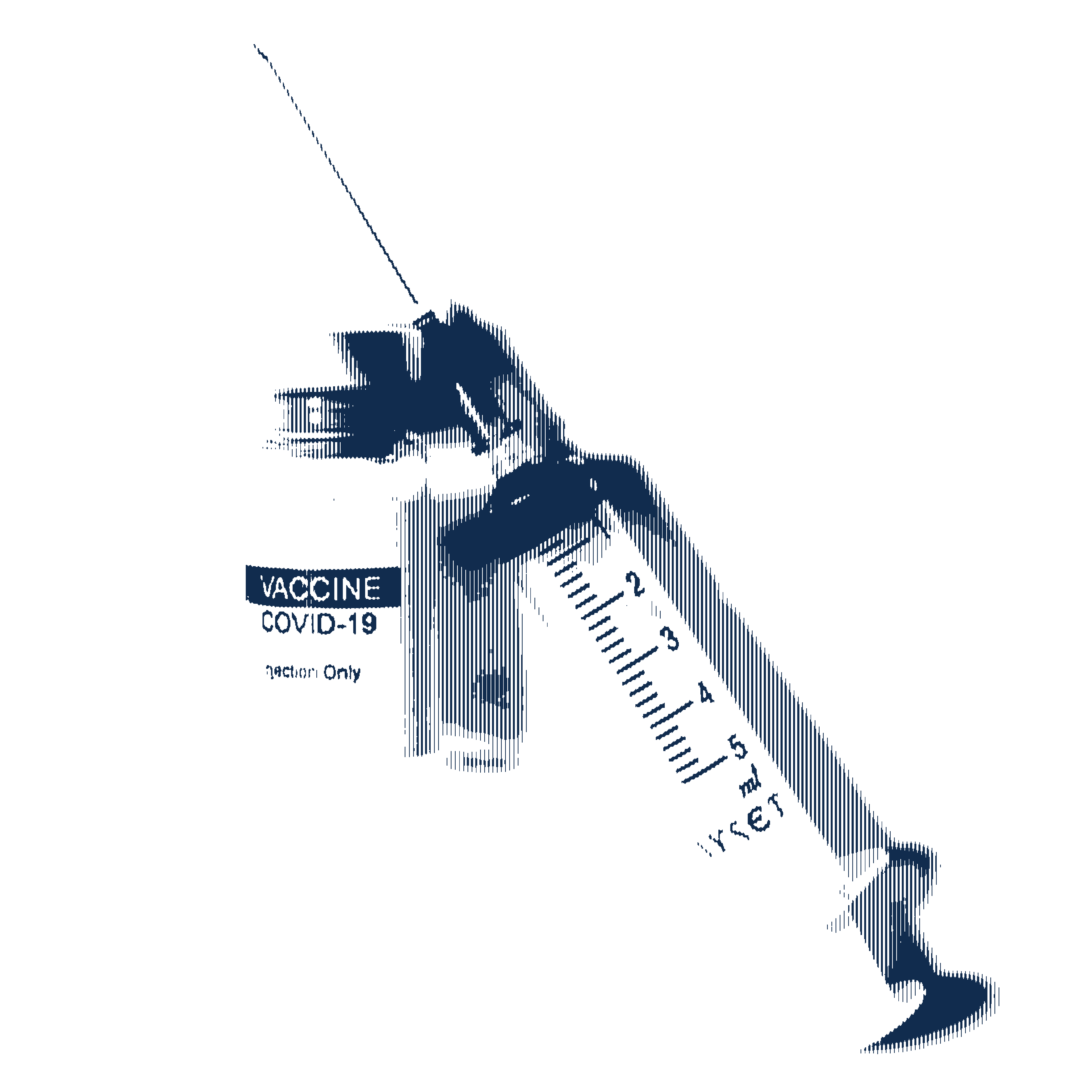
"A devil's choice." That's how Seth Berkley, head of GAVI, the Vaccine Alliance, describes the dilemma facing global health organizations in the past few weeks. They could either continue to support mass vaccination campaigns in poor countries and risk inadvertently helping to spread COVID-19—or recommend their suspension, inevitably triggering an upsurge of many other infectious diseases.
In the end, they chose the latter. As Science reported last week, the Global Polio Eradication Initiative on 24 March recommended suspending polio vaccination campaigns until the second half of the year. Two days later, the World Health Organization's (WHO's) Strategic Advisory Group of Experts on Immunization (SAGE) issued a broader call, recommending that all preventive mass vaccination campaigns for other diseases be postponed. "Any mass campaigns would go against the idea of social distancing," says Alejandro Cravioto of the National Autonomous University of Mexico's faculty of medicine, who chairs SAGE.
But experts say the fallout from the wrenching decision will be huge and may last long after the pandemic subsides. It comes on top of the damage COVID-19 will do to the fragile health systems in many countries.
Mass vaccination campaigns against a host of diseases are already grinding to a halt in many countries. For many children, these campaigns are the only chance to get vaccines. Some 13.5 million have already missed out on vaccinations for polio, measles, human papillomavirus, yellow fever, cholera, and meningitis since the suspensions began, Berkley says. "I tell you those numbers will be much larger than what we see today."
In the case of polio, more children will be paralyzed in countries where polio is still circulating, and the virus will likely spread to countries that are now polio-free. The decision couldn't come at a worse time. The polio eradication effort is already reeling from setbacks in Afghanistan and Pakistan, where the wild virus is surging, and in Africa, where outbreaks caused by the live polio vaccine itself are spiraling out of control. The program will reassess the decision every 2 weeks.
Twenty-three countries have already suspended their measles campaigns, and as a result, 78 million children will miss out on the vaccine, says Robb Linkins, a measles expert in in the Global Immunization Division of the U.S. Centers for Disease Control and Prevention. Sixteen other countries are still deciding. Linkins foresees "tragic" consequences. In poor countries, the virus can kill 3% to 6% of those it infects, WHO says, with malnourished children especially at risk. Measles infected an estimated 10 million and killed 140,000 in 2018, the last year for which numbers are complete. And because measles is incredibly contagious, case numbers could quickly surge following the suspensions.
Unlike the polio initiative, SAGE stopped short of recommending that countries halt campaigns to quell ongoing measles outbreaks, but it said they should carefully weigh the risk of an immediate response against that of a delayed one. For now, campaigns are continuing in the Democratic Republic of the Congo, where the world's biggest outbreak has so far killed an estimated 6500 children—far more than the ongoing Ebola outbreak in that country—and sickened more than 340,000.
WHO, GAVI, and other health organizations stress that routine immunization of individual children at clinics must continue as much as possible during the coronavirus pandemic. But health systems in many countries were already stretched thin, and protective gear is often lacking. Berkley fears severe disruptions of routine immunization if health workers are diverted to COVID-19 or become sick or die, or if parents are afraid to bring their children to a clinic. Vaccines may run out as well. Some countries are already experiencing shortages as flights are grounded and borders close, Berkley says.
Other essential health services will also be disrupted, says Augustin Augier, executive director of the Alliance for International Medical Action. Every year, ALIMA trains about 500,000 African mothers to diagnose acute, potentially fatal malnutrition in their children; those programs have been suspended. The knock-on consequences of the pandemic "will be much stronger and more lethal for the world's most vulnerable populations," Augier says.
Across all these programs, the goal is to regain lost ground quickly once the pandemic is over. In the meantime, WHO says, countries should continue surveillance for vaccine-preventable diseases to figure out where pathogens are circulating and which children are most at risk. But that, too, is a challenge amid the fear and disruption from COVID-19.
Berkley sees some hope in the experience in West Africa after the 2014–15 Ebola outbreak. "There was an unprecedented flow of finance and goodwill," he says. "We did campaigns once Ebola was over and strengthened routine immunization. We not only recovered coverage levels, but exceeded them." But that epidemic was largely confined to three countries with a combined population of fewer than 25 million people. This time, the entire world is affected.










